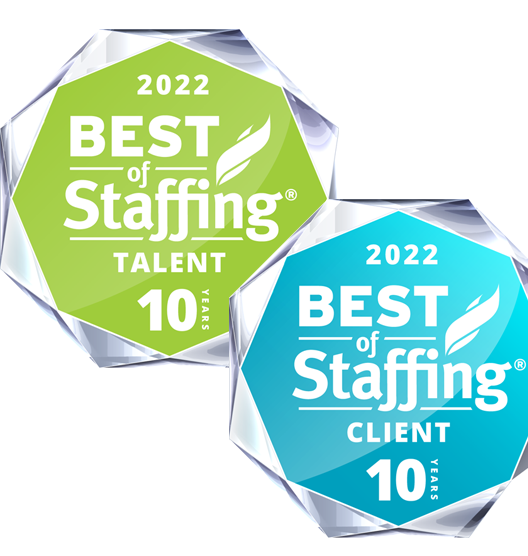Busting Up Career Plateaus: How to Avoid Complacency and Remain Engaged in Your Work |
 |

You're stuck. You feel frustrated. You hate what you are doing. You begin to feel resentment towards others at work. Does any of this sound familiar? These are feelings that are often wrapped around career plateaus. You're not alone -- everyone inevitably hits a plateau of some degree during their career. And when it happens, this can be very damaging if you are not careful.
My job is to bring you the good news -- it doesn't have to be damaging. Plateaus are all about perspective. Plateaus are not always bad, nor are they always good. They are situational. When you reach a plateau you have a decision to make and can choose to do 1 of 3 things: Break out of it, embrace it, or ignore it.
1. Break out of it.
If you are unhappy with your situation, take control of it. Don't blame others. Don't wait for someone to come and rescue you. Instead, decide what you need to do differently to once again create a competitive advantage. Has your field advanced faster than you have kept up with the skills needed to continue to advance? Are your skills lagging in comparison to others? When you break out of a plateau, you will not only be a better place, but you will also feel a sense of pride and accomplishment. This will heighten your engagement, and you will be able to create very positive momentum on your path.
2. Embrace and ride it.
If you like what you are doing and are enjoying it, be happy with that. Even if you have been doing something for a long time, you should feel no pressure to do something different. This permanent plateau can be quite positive if it is what you want to do and you are making a difference. In addition to providing fulfillment, spending time at a plateau is a great time to perfect what you do and develop a state of mastery. What once seemed rather challenging can begin to feel easy. Some of the most engaged employees I have met are at a permanent plateau that they have embraced.
3. Ignore it.
This is, not surprisingly, the only bad option. If you choose to ignore the fact that you are frustrated, it will only get worse and you will fall into career stagnation. When you bury your head in the sand, the gap that you have will only widen. You will blame others for your situation instead of taking ownership of it. Finger-pointing and rationalizing will only further compound a bad situation, and your engagement in your work will be almost nonexistent.
It is essential to remember that plateaus are a personal thing; there are no universal rules that can be applied. What is a negative plateau for one person can be a positive plateau for another person. Let's take the example of two law school students who joined the same firm after graduation. Six years later, one of them is very happy and the other is very frustrated.
Jane really enjoys the specialty area of law she began practicing, and realized that she had no strong desire to be a partner in the firm. Joe -- who is practicing in the same area -- finds the job tedious and does not enjoy what he is doing; he simply views it as a necessary step towards partner.
Despite their differences in ambition, it is actually Jane that people commonly seek out first for advice. The other partners want to put her on the fast track towards partner. Joe, meanwhile, has scared people away with his brusque style and poor treatment of those he views as obstacles. Instead of considering what he needs to do differently, Joe ignores his situation and eventually leaves the firm after alienating most people there.
You can see that in the same situation there can be entirely different perspectives and approaches. While it is clear that Joe would not embrace his plateau, he could have looked to do something differently to break out of it. If you find yourself leading down a path that may lead to an undesirable plateau, act now. Do not wait for it to hit you before you make changes. A little preparation in advance will go a long way in minimizing or even being able to entirely stave off a plateau.
Along every career trajectory there will be inflection points when you have to decide which path to take. Ultimately, you must decide which path to take if you reach a plateau. The right choice will be the one that provides you with the most enjoyment and fulfillment at work and in life. The most important thing to remember is that you own these decisions and your career. Others will help you along the way, but it is ultimately you that must take ownership of it.
David Van Rooy is Senior Director of International Human Resources Strategy & Operations at Walmart, where he is responsible for working across Walmart’s non-US markets to develop and execute the International HR strategy. In his prior role at Walmart he was responsible for the world’s largest performance management and employee engagement programs, covering nearly 2.2 million employees globally. Before Walmart he held leadership roles at Marriott International and Burger King Corporation. He has a Ph.D. in Industrial and Organizational Psychology and has published over 20 peer reviewed scientific business articles and book chapters. His new book, Trajectory: 7 Career Strategies to Take You From Where You Are to Where You Want to Be was published in May by the American Management Association (AMACOM). In it David explores the concept of Career Trajectory and how you can take advantage of your skills and the possibilities around you to reach your goals. Combining psychology with real-world, practical guidance, this essential guide provides the tools you need for a lifetime of fulfillment and success.





